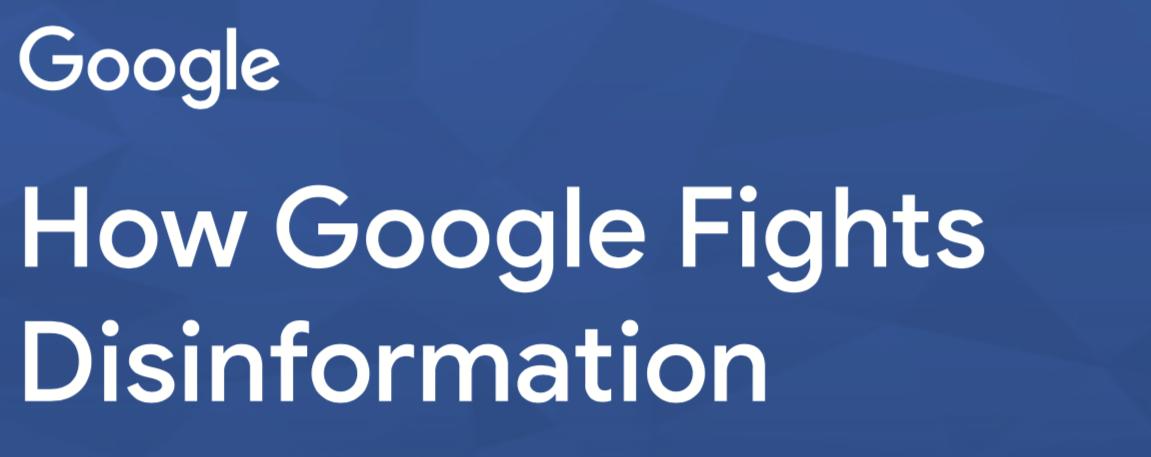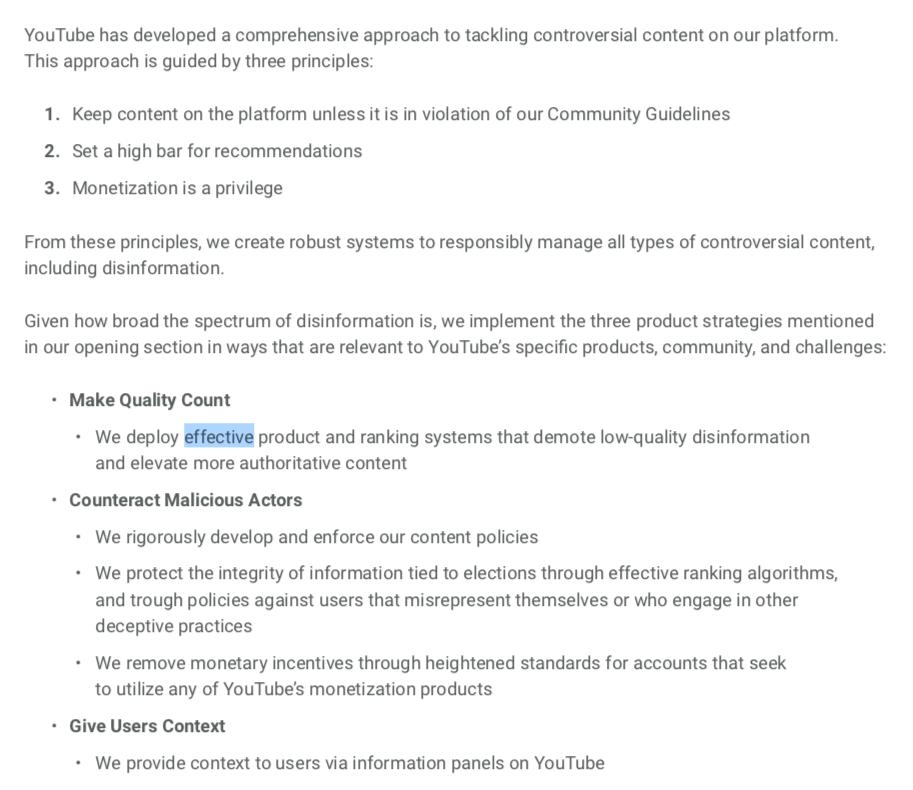Let's take a look:
blog.google/around-the-glo…

- Focusing on disinformation: "deliberate efforts to deceive"
- Using 3 core strategies:
1) Making quality count
2) Counteracting malicious actors
3) Giving users more context
- Collaborating(ish) — @firstdraftnews, @_trustproject, @factchecknet
a) Google Search/News
b) YouTube
c) Advertising
There is not much particularly new in these 32 pages for those paying close attention—but it is a helpful summary and reference for those looking to build upon existing work and identify holes.
It is:
- "Investing in research" (on detection)
- "Working with leading experts"
- "Engaging with civil society, academia, newsrooms, and governments"
- "Releasing datasets of synthesized content"
They also imply that one of YouTube's core company goals (aka OKR's—Objective Key Results) has moved from "Growth" to "Responsible Growth".
They say that "our business depends on the trust users place in our services to provide reliable, high-quality information."
Uh. That isn't what most users go YouTube for, it's not why people create videos, and advertisers don't care.
motherboard.vice.com/en_us/article/…
That's what we've been wanting to hear! 👏👏👏🎉
(though I thank research, press & regulatory threats for making this happen...)
What they meant to say(?) is that Google never *intentionally* personalizes based on ideology.
The only way to actually tell is to analyze this, which requires collecting the signals they say they don't collect!
Sorry, that was a tangent.
Back to YouTube:
It sets out the core principles:
1) Don't ban most things
2) High bar for recommendations
3) Monetize carefully
These are good.
But...it perhaps oversells "effective".

This is meant to say to regulators/press: "We are doing things. LOOK! See all the things?! There are a LOT of things. Aren't we great!!!"
And...they're right. This is much better than 2016 👏
If you build products:
> Read it! Lots of good ideas here.
If you push for responsibility (press/research/gov):
> Read it! Or waste everyone's time.
> Goog still has lots to do. Will save that for another thread...






















